An inhibitor can decrease methane production in ruminants
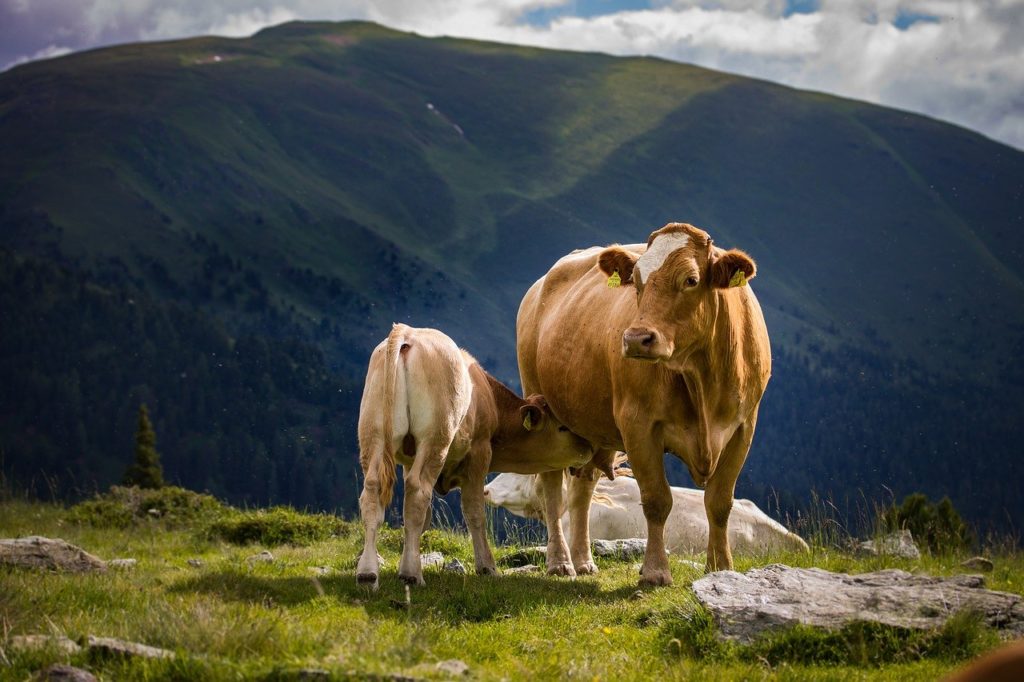
A research group from Cinvestav (Public University of Mexico City) is testing a drug that inhibits methane-producing archaea in cattle. They are testing a compound called lovastatin, which inhibits or limits the synthesis of the cell membrane responsible for the production of methane in ruminants.
The shelf life of meat, according to the Food Standards Agency
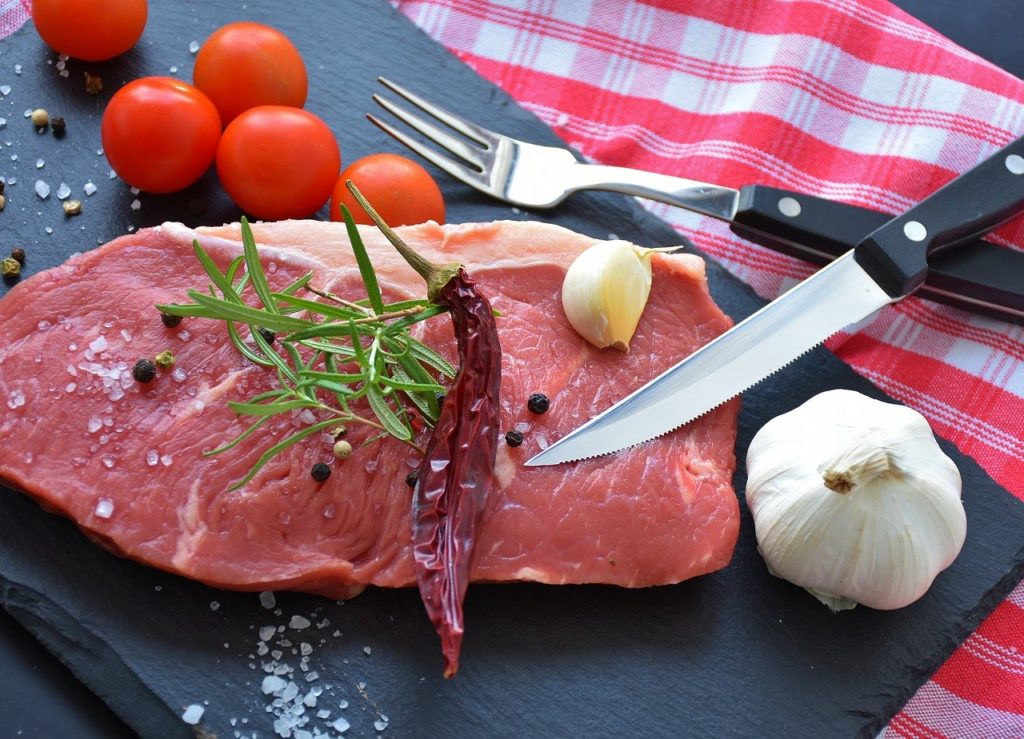
The UK Food Standards Agency (FSA) has published a new Shelf Life Guide for Meat. The revised guide covers fresh modified atmosphere vacuum-packed beef, lamb, and pork sold in American supermarkets. It does not apply to meats subject to further processing, such as chopping, cooking, or mixing with other ingredients such as herbs, spices, or curing salts.
Hotel sector ask for direct aid worth 8,500 milion euros

The hospitality sector, through the Juntos con la Hostelería platform (made up of FIAB, Hostelería de España and AECOC) has […]
Meat production ranks first in the entire national food and beverage industry with 22.6% of the entire food sector
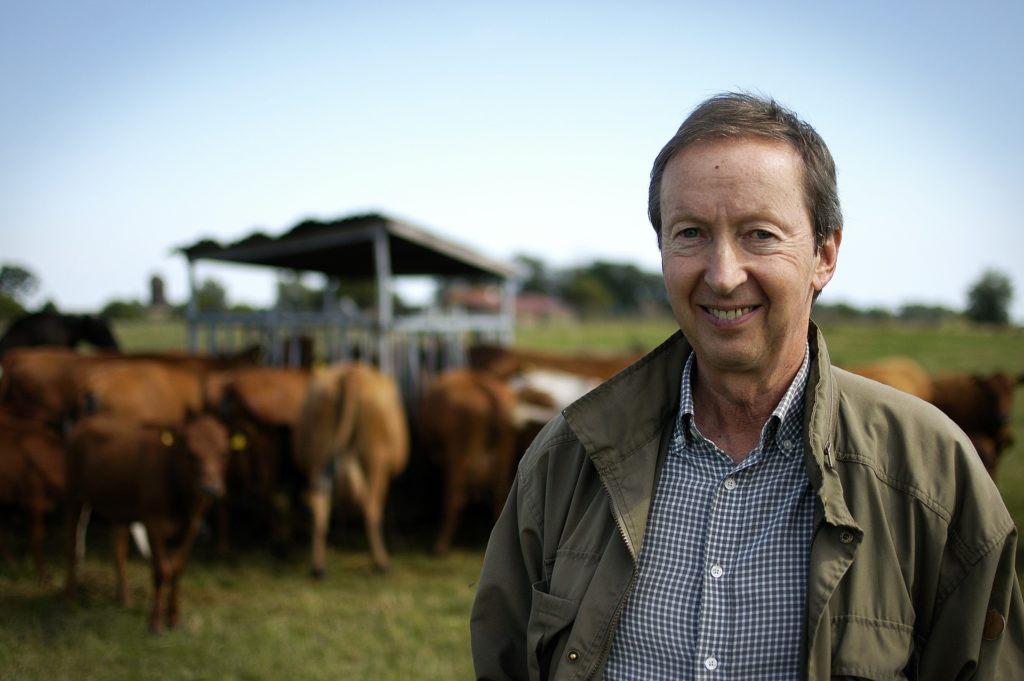
Spanish meat production ranks first in the entire national food and beverage industry with 22.6% of the entire Spanish food sector. This turnover represents 2.24% of the total Spanish GDP, 15.6% of the GDP of the industrial branch and 4.2% of the total turnover of the Spanish industry. Spanish meat production is also an international benchmark for its export capacity.
The European Parliament allows each state to regulate meat names for products that are not
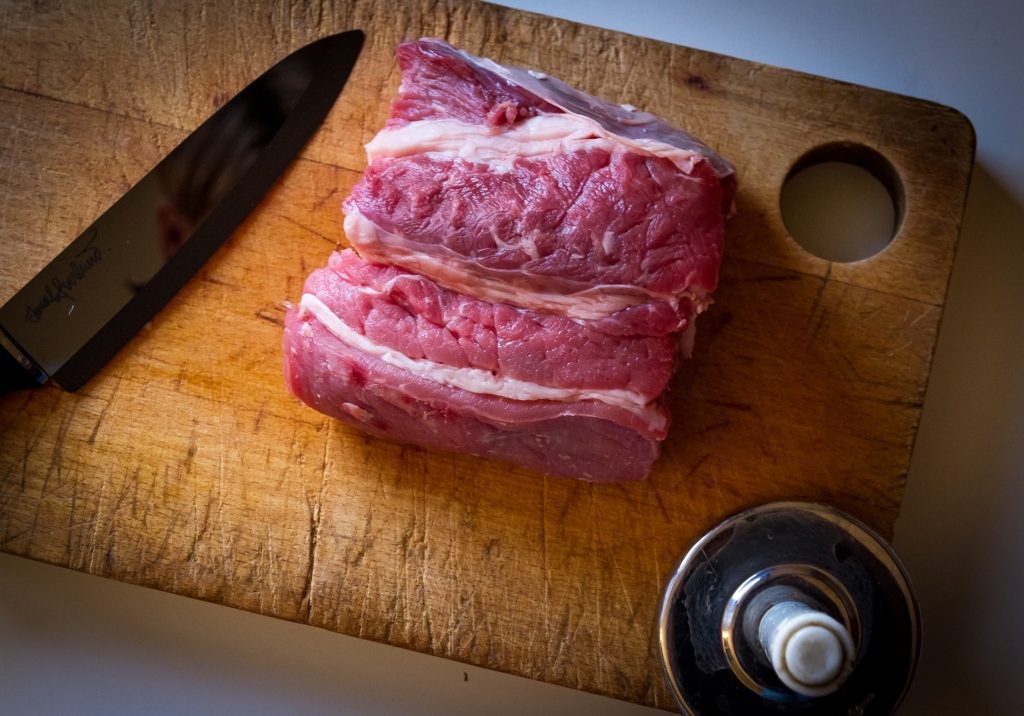
The European Parliament has rejected prohibiting vegetable products from having the same names as meat products, such as hamburgers. But member states can regulate this issue at the national level. For the European Union of Livestock and Meat Industries (UECBV), although “the harmonized protection of the EU provided for meat names” would have been better, however, they see positive the decision to regulate it at the national level.
Anafric se suma a la campanya europea contra l’ús indegut de les denominacions càrnies en productes “que no provenen de la carn”
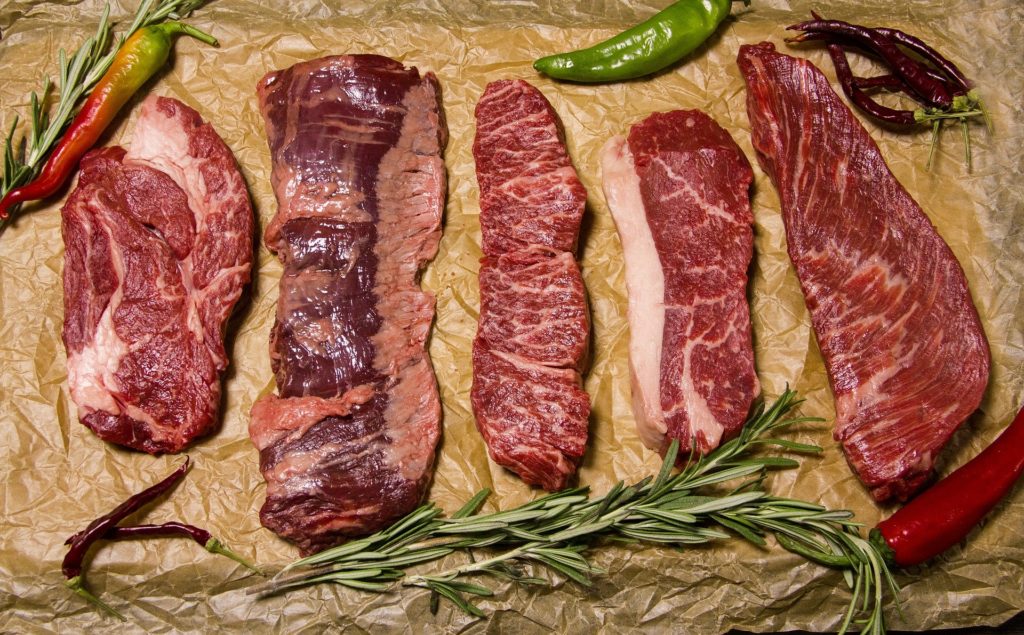
Esto no es un bistec” es la nueva campaña que han iniciado seis organizaciones europeas, encabezadas por la UECBV, AVEC CLITRAVI, Copa Cogeca EFFAB, y la Confederación Internacional de Carniceros a través de la cual quieren dejar constancia el uso de las denominaciones tradicionales de productos cárnicos y lácteos por parte de nuevos productos veganos o sin producción cárnica. Las asociaciones representantes del sector animal en Europa exponen que con la participación del creciente número de empresas multinacionales en el mercado vegano , “ha habido en los últimos años un empuje para que denominaciones como “filete”, “hamburguesa”, “salchicha”, a imitaciones de productos lácteos y carne de origen vegetal”.
The meat sector can present allegations to the Royal Decree on measures of video surveillance in slaughterhouses until October 23
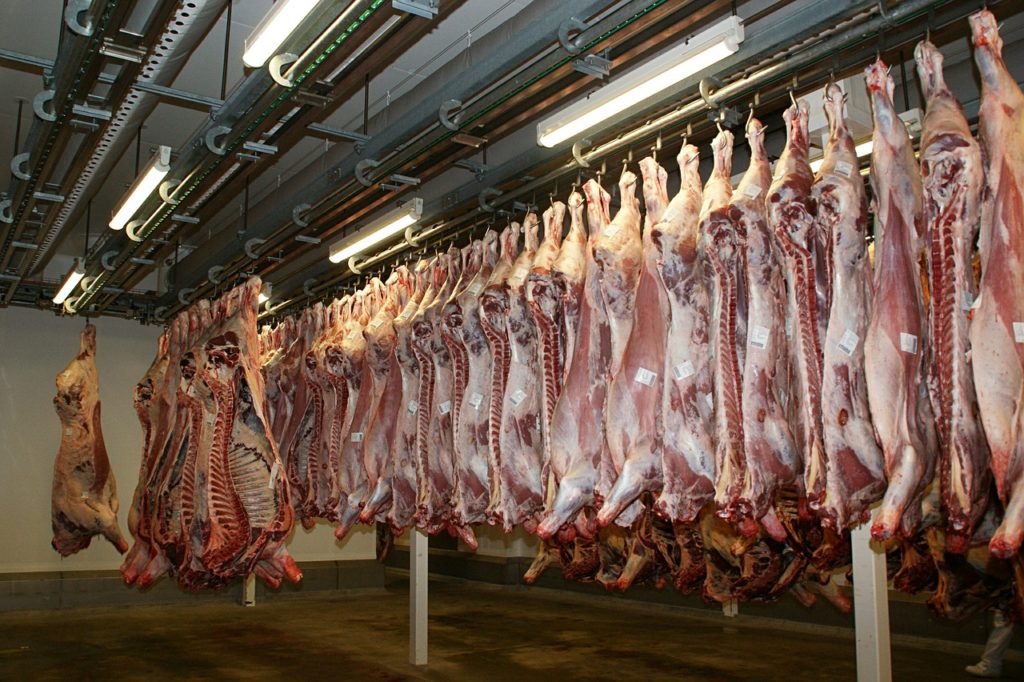
The Ministry of Consumption, through the Spanish Agency for Food Safety and Nutrition (AESAN), has released the draft Royal Decree […]
UECBV and 5 other European associations in favor of calling things by their name: products associated with meat may only be made from animal products
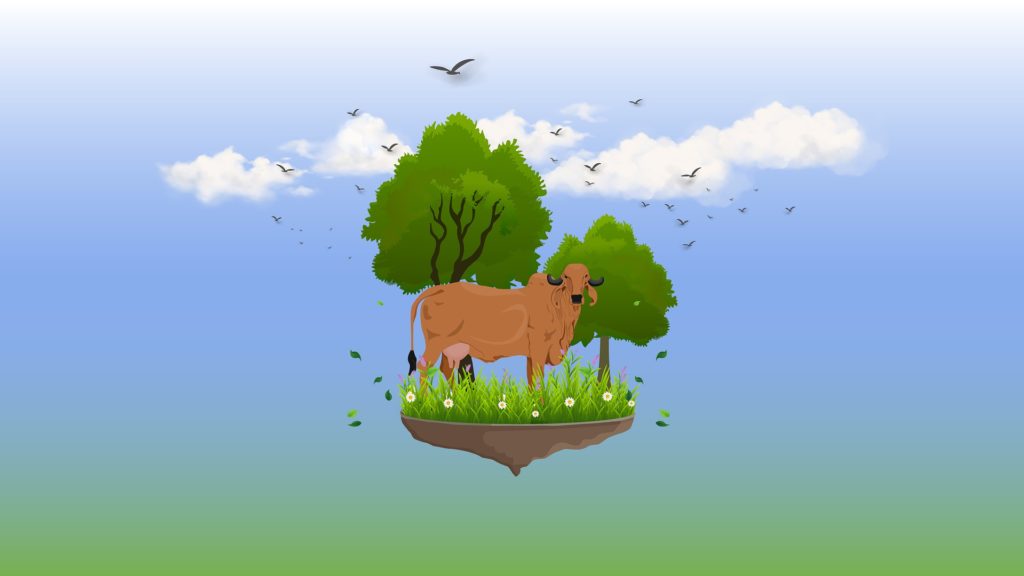
Seis organizaciones europeas (AVEC, CLITRAVI, Copa Cogeca, EFFAB, UECBV y la Confederación Internacional de Carniceros) han emitido una nota conjunta, en la que piden que se aborden las cuestiones que se plantean ante el uso de las denominaciones tradicionales de productos cárnicos y lácteos por parte de nuevos productos que se comercializan aprovechando dichos nombres sin ser precisamente eso, productos cárnicos o lácteos.
Guide for the prevention and control of covid-19 in the meat industry

Los ministerios de Trabajo, de Agricultura Pesca y Alimentación, conjuntamente con la Agencia Española de Seguridad Alimentaria y Nutrición (AESA A) y diferentes sociedades científicas han elaborado una guía para la prevención y control del covid-19 en la industria cárnica. Se trata de una guióa basada en evidencias científicas que permite garantizar la seguridad de los alimentos, proteger la salud y la seguridad de todas las personas que trabajan en la industria alimentaria.
Conference on the impact on the livestock sector and health of the “From Farm to Fork” Strategy

Plataforma Carne y Salud organized an online workshop to analyze the impact on the Spanish livestock sector and health of the ‘From Farm to Fork’ strategy recently presented by the European Commission.
“We need a common commitment to defend our products, our livestock production model and our Mediterranean diet, with a balanced consumption of all foods for health,” said MEP Clara Aguilera in her speech at the online conference organized by the Platform ” .
“Necesitamos una apuesta común para defender nuestros productos, nuestro modelo de producción ganadera y nuestra dieta mediterránea, con un consumo equilibrado de todos los alimentos para la salud”, manifestó la eurodiputada Clara Aguilera en su intervención en la jornada online organizada por la Plataforma”.
Rapid coronavirus detector for food processing surfaces, end of 2020
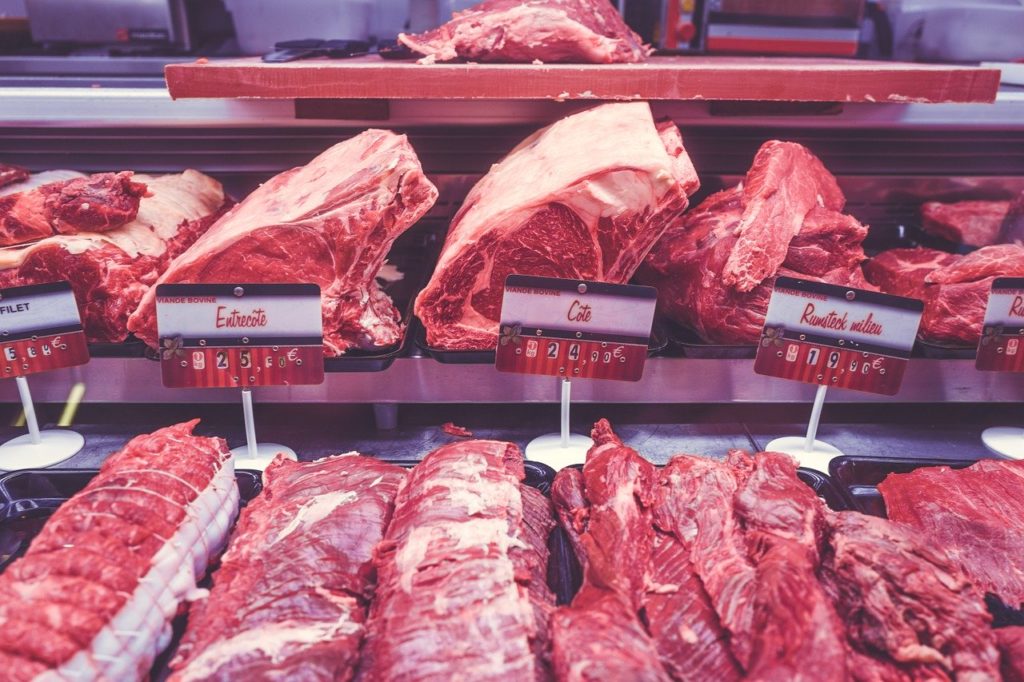
The Consejo Superior de Investigaciones Científicas (CSIC) participates in a European project to design a method for rapid molecular detection of SARS-CoV-2, which causes COVID-19, on food processing surfaces.
Digital cowbells to geolocate and monitor livestock
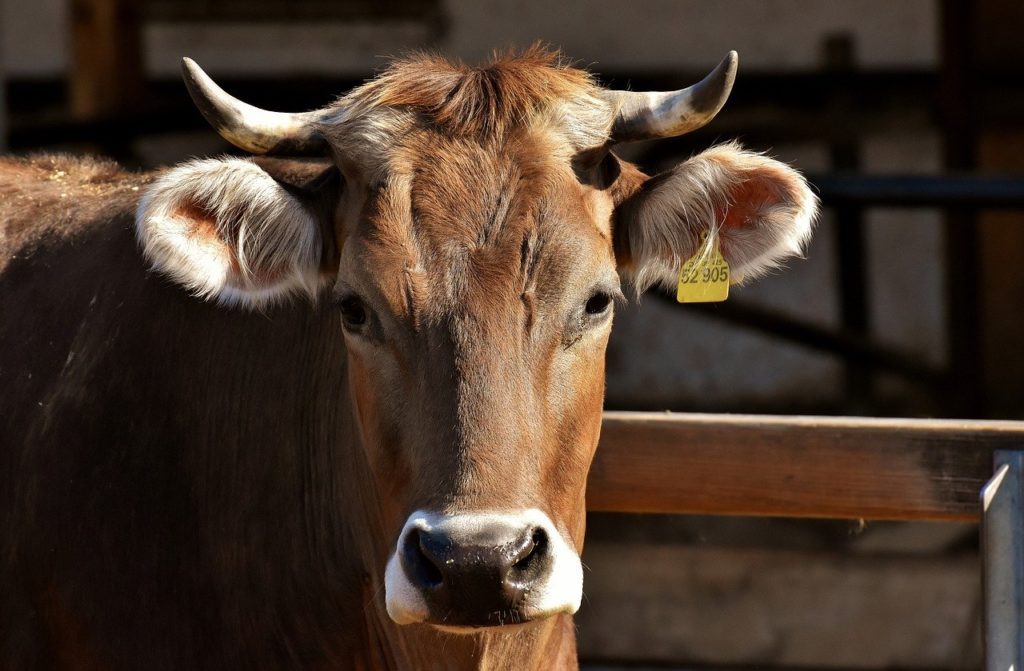
Several ranchers throughout Spain are installing livestock monitoring and geolocation devices on their animals these days. They are doing so thanks to the GELOB project, coordinated by the Union of Small Farmers and Livestock (UPA). The goal: to improve animal handling and avoid wolf attacks.
The Parliament of Catalonia approves a resolution in favor of the meat sector
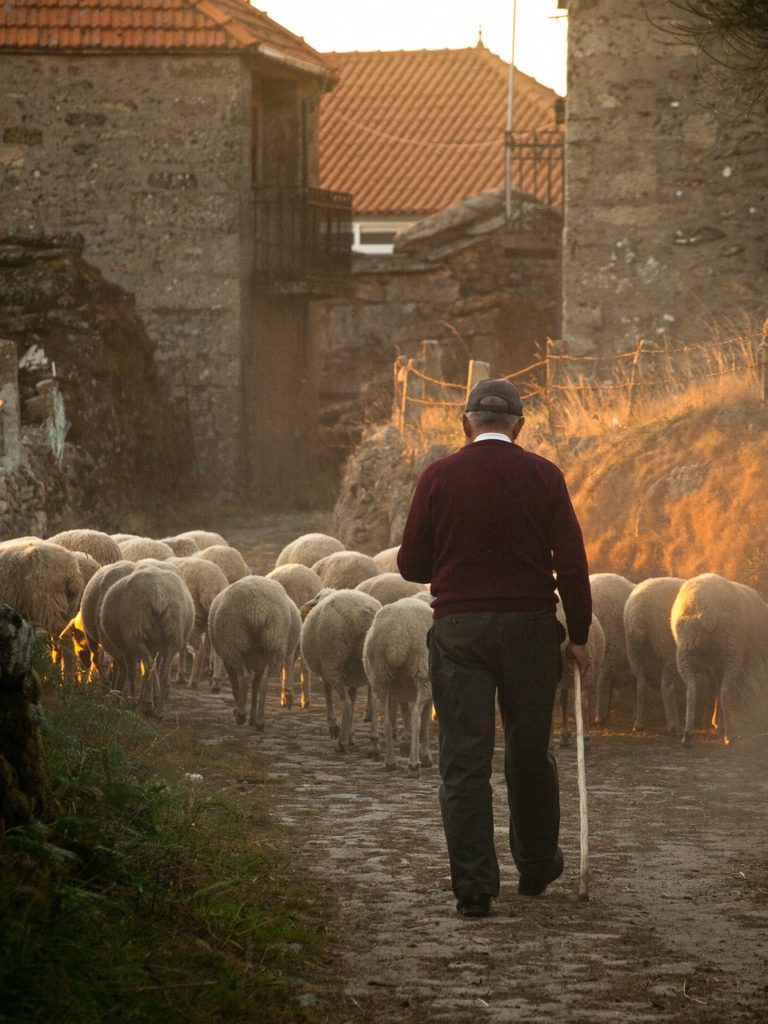
The Committee on Agriculture, Livestock, Fisheries and Food of the Parliament of Catalonia, in the session of June 30, 2020, has approved a resolution presented by the Parliamentary Group Socialistes i Units per Avançar, and the amendments presented by the Grup Parlamentari Republicà and the Parliamentary Group of Junts per Catalunya, a resolution in favor of the meat sector.
Campaign in UK for countering negative information on red meat
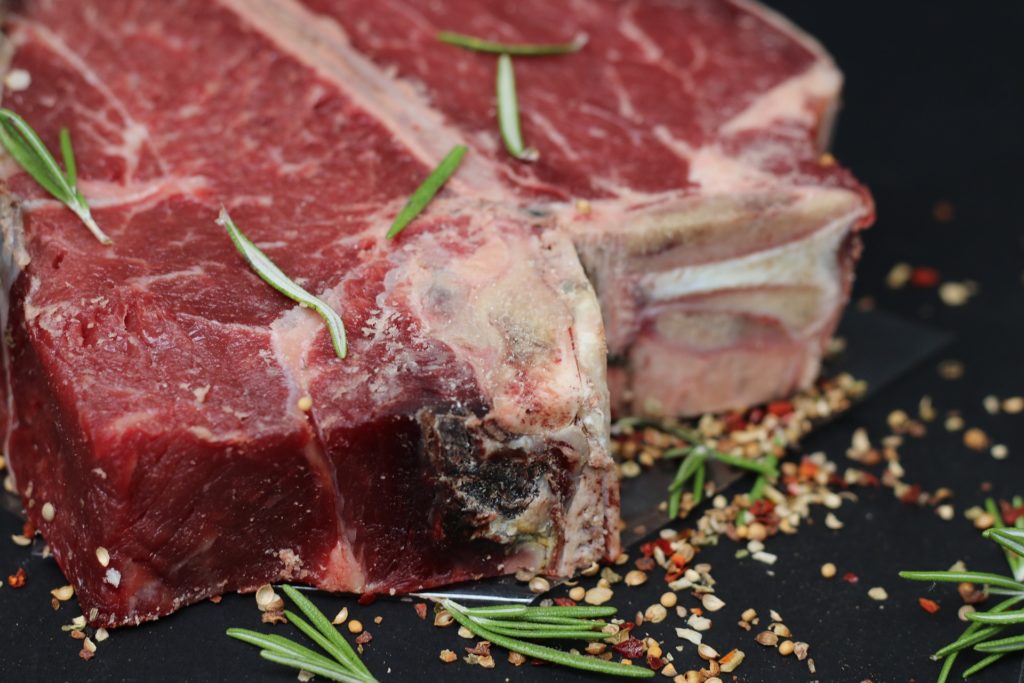
Institutions as AHDB, Quality Meat Scotland (QMS) and Hybu Cig Cymru (HCC) – Meat Promotion Wales, has carried out a series of activities in the past 12 months to help counter disinformation in the media about the role of red meat in the diet, providing scientific evidence-based information to consumers about the important health benefits of beef, lamb and pork.
Alimentaria no descarta un cambio de fechas
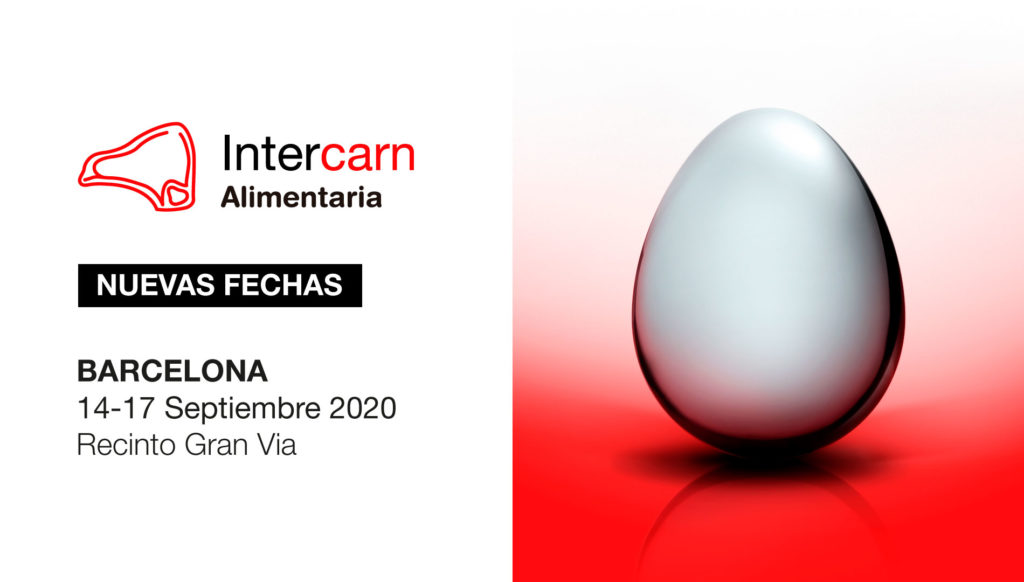
El director de Fira de Barcelona, Constantí Serrallonga, no descarta realizar un cambio de fechas para la celebración de la próxima edición de la feria Alimentaria en Barcelona. Serrallonga participó en una entrevista en Catalunya Radio donde confirmó esta posibilidad de cambiar de fechas: “Nuestro primer objetivo es trabajar para hacerla” ya que sería “un gran signo de normalidad”, pero la renuncia de participación de grandes empresas (nacionales e internacionales) hace que la organización no descarte la modificación de fechas hacia finales de 2020 o ya en 2021. “Si vemos conjuntamente que hay una fecha mejor para hacerla, no tendremos inconveniente porque al final lo importante es ayudar al sector y hacer de motor. Queremos encontrar un consenso”.
Carne y Salud: ¿”Carne” sintética? ¿Qué interrogantes técnicos, científicos y de salud plantea?
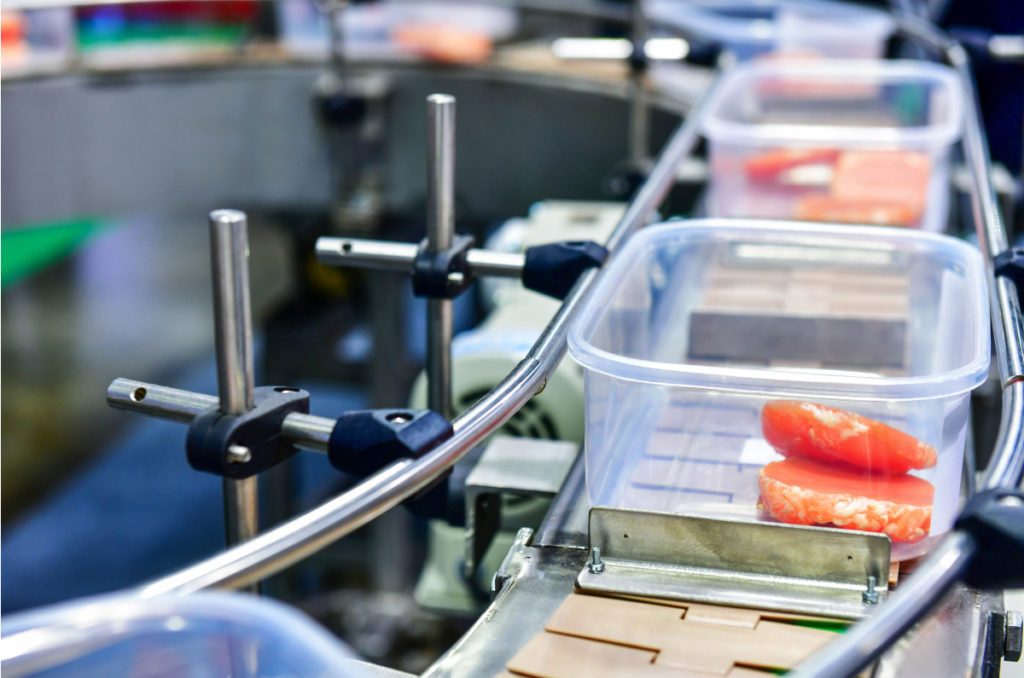
La mal llamada “carne” sintética o de laboratorio se está queriendo presentar como una alternativa a la carne real, prometiendo […]
Carne y Salut platform. The livestock-meat sector, economic engine of rural Spain
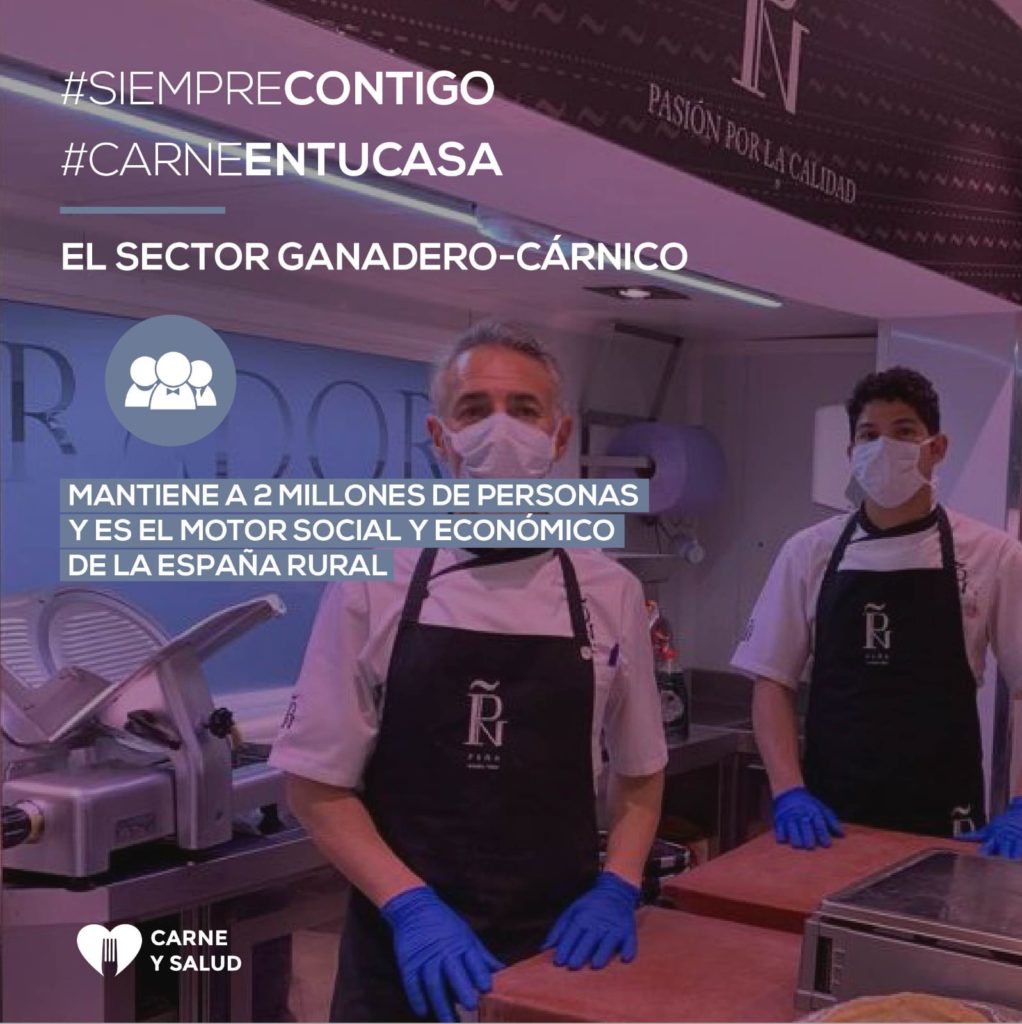
The livestock-meat sector reiterates its commitment to feeding the population, offering them quality, safe products and complying with the strict requirements of animal and environmental welfare set by the European Model of Production, redoubling its efforts to contribute to the whole of society to overcome the crisis caused by the coronavirus.
Consumers, veterinarians and administrations recognize the work carried out by the livestock-meat sector during the pandemic
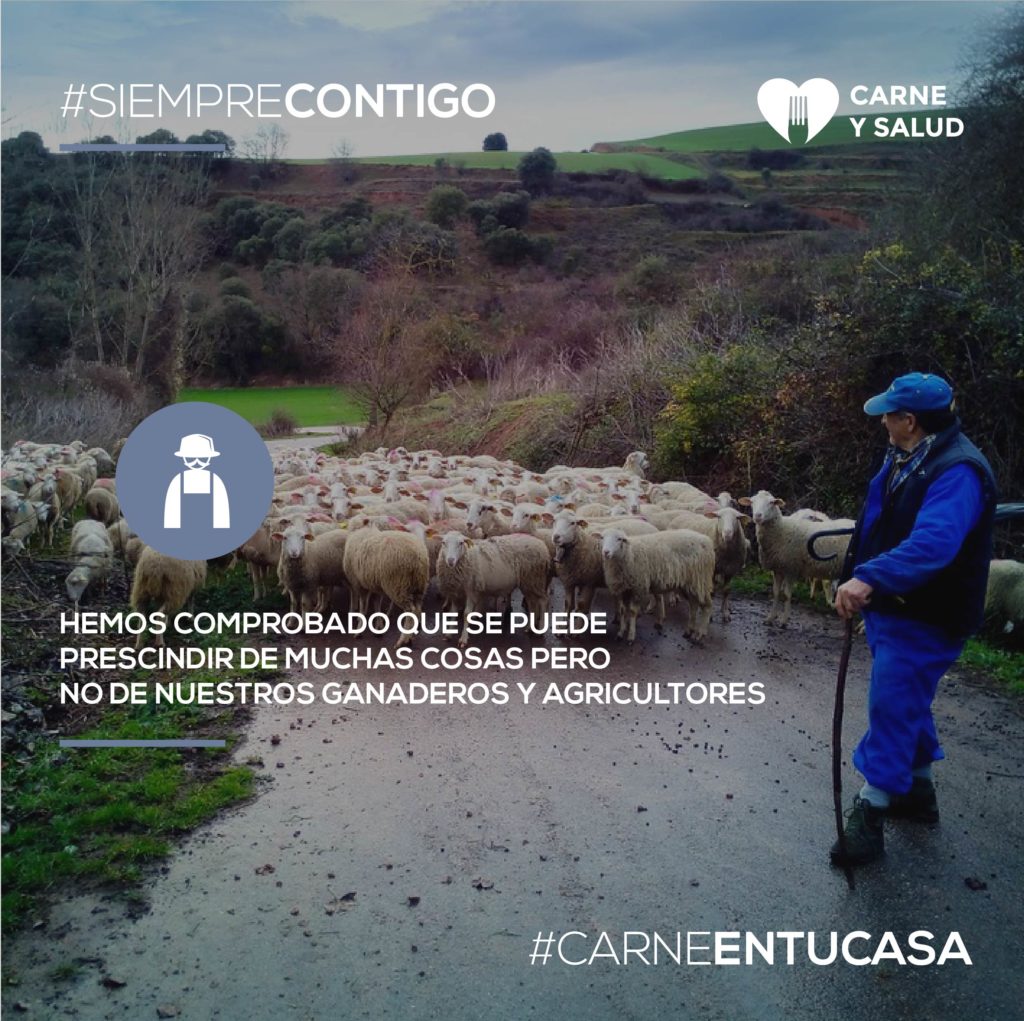
Livestock directly employs more than half a million people in Spain, meat industries 97,000 workers and retail trade another 75,000, estimating that about two million people live in the livestock-meat chain in Spain.
Carne y Salud. Meat and processed meat, protagonists during confinement
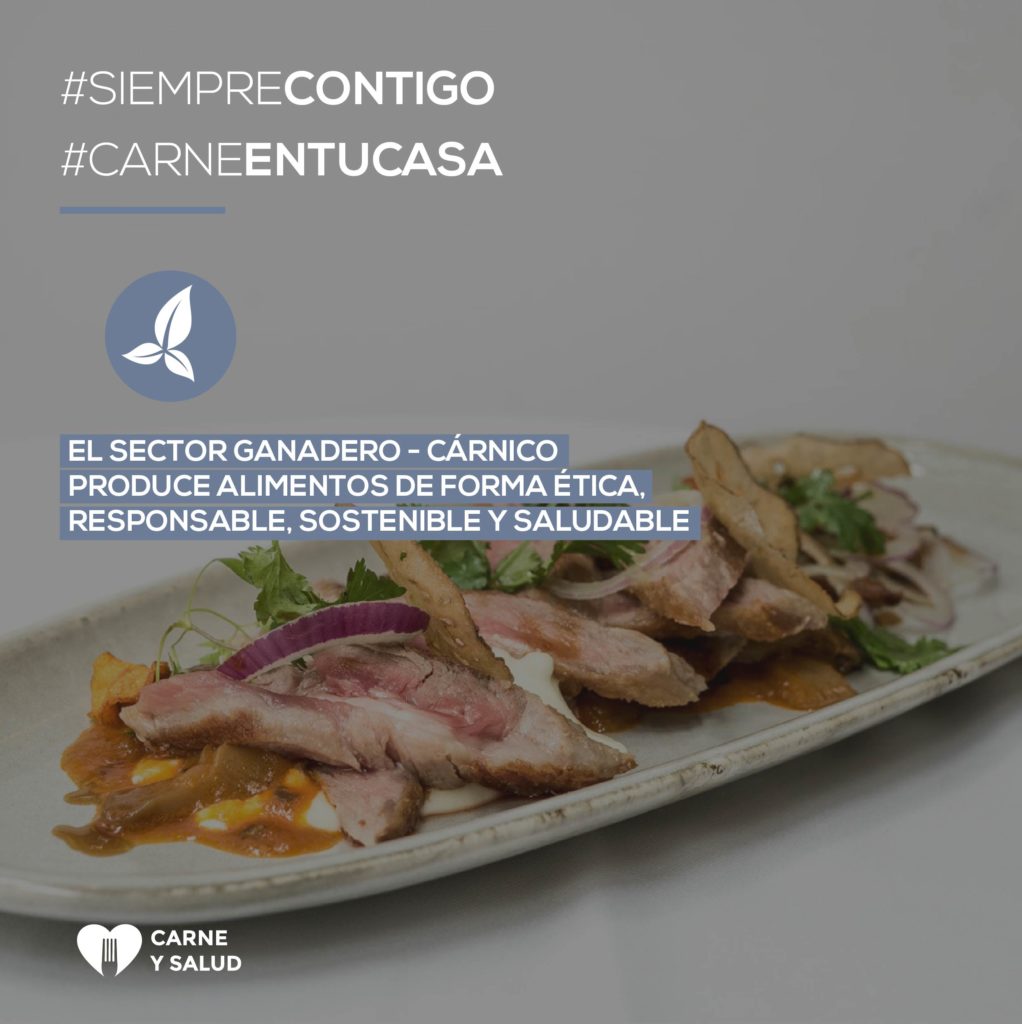
In the seven weeks that have passed since March 9, 4.5 million tons of food and beverages have been made […]
Carne y Salud: Sustainability and a European production model for the Spanish meat sector
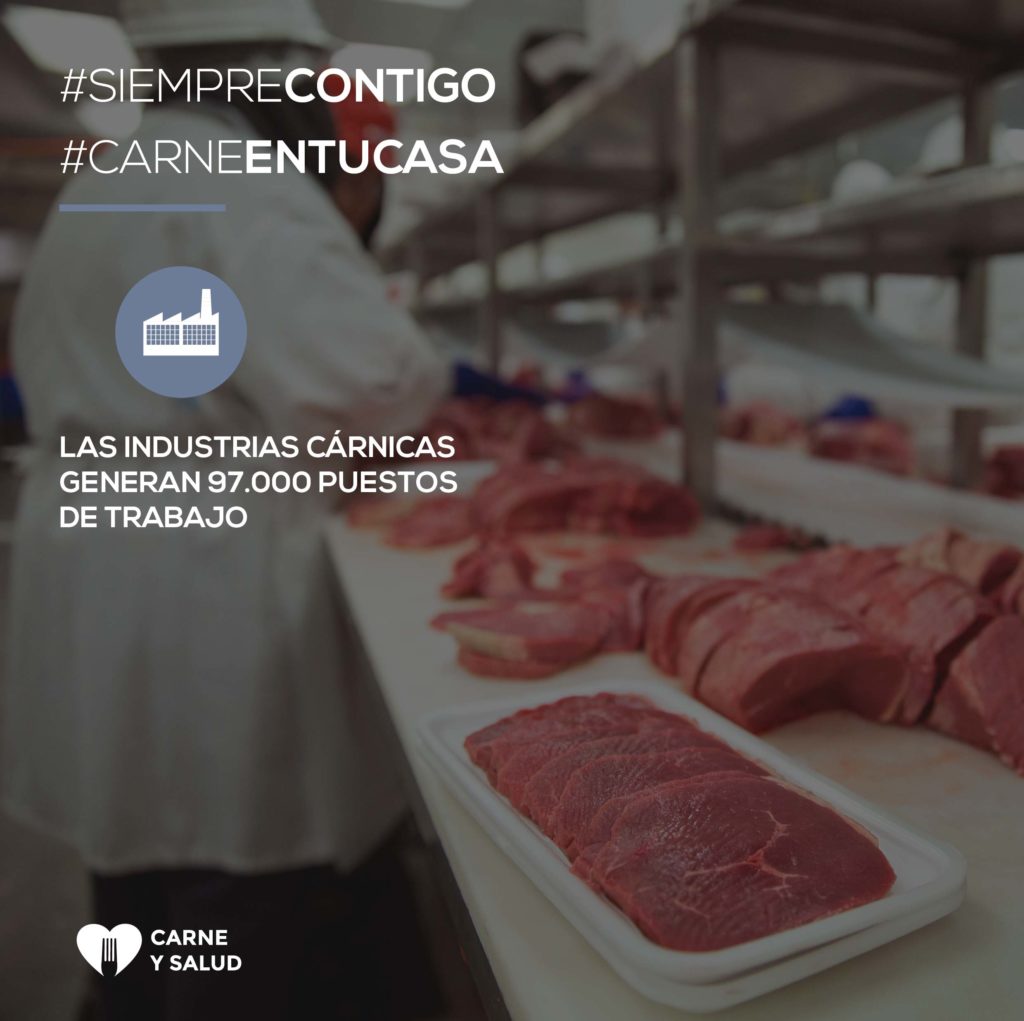
Livestock farms in our country have experienced in recent years a profound evolution that has given rise to a new […]
